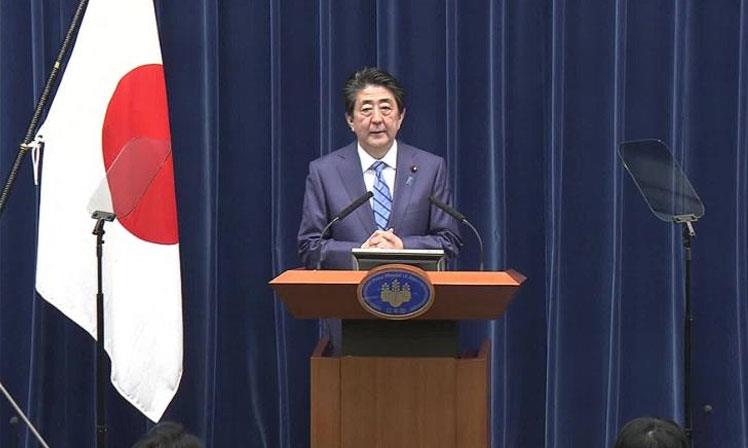
Shinzo Abe resigns as Japan's Prime Minister
Japan,28 Aug,2020
Japanese Prime Minister Shinzo Abe on Friday stepped down from his duties after a record-breaking tenure over health problems.
Abe, who is the country�s longest-serving Prime Minister, has been battling with a chronic disease, ulcerative colitis, for many years. He had stepped down from office in 2007 over the issue after he became Japan�s youngest serving Prime Minister at the age of 52 in 2006 since the Second World War.
Amid the government�s handling of the coronavirus crisis and a chain of scandals, which included the arrest of former justice minister Katsuyuki Kawai, the public support for Abe has been fading in recent months.
Here�s a look at Abe efforts to follow the roadwork his family laid for Japan:
* Shinzo Abe was first elected to parliament in 1993 after his father�s death and gained national recognition as he adopted a tough approach towards the doubtful neighbour North Korea as the two nations were engaged in a fight over the kidnapping of Japanese citizens by Pyongyang decades ago.
* After becoming the Prime Minister in 2006, he brought in several steps to balance the country�s budget. A year later, before his resignation, he proposed a bill to instil nationalism among the Japanese youth.
* In 2007, he also initiated the Qualteral Security dialogue- an informal strategic forum between United States, India, Australia and Japan through summits, military drills and information exchanges.
* Five years after stepping down from the office due to health reasons, Shinzo Abe led his conservative Liberal Democratic Party (LDP), which was ousted in 2009, back to victory in 2012 and was elected as the Prime Minister for a second time by Diet on December 26. From there on, he launched a three-pronged Abenomics strategy to beat persistent deflation and revive economic growth.
* Under Abenomics, the first stage was easing of monetary policy to achieve a target of 2% inflation. The second stage was a fiscal policy which comprised providing financial assistance for small businesses, increased defence spending and a reduction in foreign aid. The third and the final stage was structural reforms which included measures such as establishing de-regulated economic zones, facilitating the digital sale of drugs and many more.
* Abe boosted defence expenditure and reached out to other nations in Asia to combat China�s growing influence. He persuaded for laws to be formed that allowed Japan to exercise the right of �collective self-defence�.
* Amid the coronavirus pandemic, the Japanese government and the International Olympic Committee decided to postpone the 2020 Olympics to next year. However, Abe persuaded that the event should not take place until and unless the situation is contained and athletes and audience can safely be a part of it.
Leave a comment: (Your email will not be published)